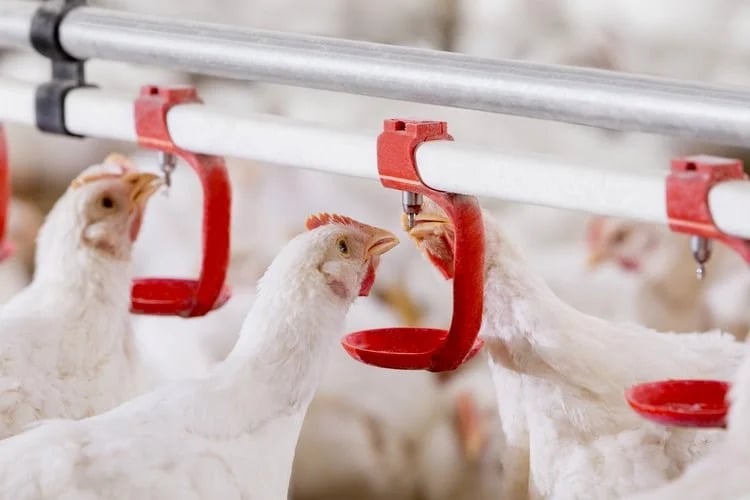
The need for organic acids
- Since animal feed represents the largest financial input in livestock production, it is essential to ensure your investment is protected. At Selko, we have conducted extensive research revealing that interventions to support safety, stability and shelf life can make feed safer and improve feed and livestock producers’ margins.
- Spoilage can lead to significant losses for producers. Microbes such as bacteria, yeast and moulds can consume valuable nutrients in feed and produce harmful substances like mycotoxins. Spoilage due to lost nutrients has been estimated to result in losses that range from 5% to 100% of a feed’s nutritional value. Adequate safeguards are necessary to prevent moulds, yeasts, and other microorganisms from proliferating and degrading nutritional value.
- Beyond the loss of micronutrients like thiamine and lysine, which are essential for animal performance, yeasts and moulds adversely affect the economic value of ingredients, harming the producer’s investment. Furthermore, harmful bacteria, such as Salmonella, are able to be transmitted to food, possibly affecting human health.
Organic acids for safe feed production
- Understanding organic acids and their synergies helps maintain safety, shelf-life, and quality of animal feed. During processing and storage, it is possible to use validated blends of buffered organic acids to safeguard against microbial threats. Their preservative effect enables them to protect against harmful bacteria and fungi.
- However, to use organic acids effectively, it’s necessary to understand their modes of action and how best to combine them into effective feed safety solutions. Each organic acid exerts a specific property that has a variable effect against different species of moulds. The metabolic and absorption properties of the different organic acids also differ, and the strengths of acidity per the pKa vary. As a result, one single organic acid cannot deliver the comprehensive benefits needed to protect against microbial threats. To ensure a broad-spectrum effect against enterobacteria, moulds and yeasts common in feed ingredients and finished feeds requires a blend of different acids with different properties.
- Organic acids can also support the durability of feed safety interventions after the feed is produced. This is not possible to achieve through using one single organic acid to deal with all the complex safety challenges that exist.
- Moisture management agents in organic acid blends also help ensure that the active complex penetrates deep into feed particles, helping the active solution to be better absorbed and retained by feed. By releasing the antimould complex over time through buffering, the blend can prolong feed shelf life further.
Organic acids for animal performance and health
- Organic acids help prevent animals from taking in harmful microbials through effective feed safety applications. In addition, specific blends of buffered and non-buffered organic acids and additional additives can optimise gut health and overall animal performance. Selko's organic acids also support animal performance, helping make it possible to produce animal protein without the use of antibiotics.
- Depending on the desired mode of action in the animal, it is possible to tailor feed additives in order to deliver the required properties – such as preventing bacterial intake in feed and water, improving the feed conversion ratio, supporting digestion, strengthening gut barrier function, stabilising microbiota in the animal, and supporting health and vitality through immunomodulation.
- However, it is always necessary to prove the efficacy of any nutritional intervention. Multiple scientific studies have demonstrated the benefits of organic acid blends delivered through feed and water. We have studied the effects of specific blends of organic acids in controlled laboratory studies, on an array of validation farms and through collaborative projects conducted around the globe.
Conclusion
- The utilization of organic acids in livestock feed production offers multifaceted benefits crucial for safeguarding both animal health and producer investments. By addressing microbial threats through a blend of carefully selected organic acids, feed safety can be significantly enhanced, thereby minimizing spoilage, nutrient loss, and potential health risks associated with harmful microorganisms like Salmonella.
- organic acid blends not only extends feed shelf life but also supports animal performance and health by optimizing gut health, improving feed conversion ratios, and bolstering immunity without resorting to antibiotics
Through extensive scientific validation, it's evident that organic acids act through two primary modes
- Acidifying the environment and inhibiting bacterial growth, underscoring their efficacy in preserving feed quality and ensuring livestock welfare
- Embracing organic acid interventions represents a proactive and sustainable approach towards maximizing feed safety, performance, and overall profitability in livestock production.

